While many of us are familiar with the stories contained in the first 11 chapters of Genesis, many of us may miss that a main goal of these chapters, particularly 3-11, is to show the spread of sin and its consequences from the Garden of Eden to the nations of the world. So while we can often retell the stories of Adam & Eve’s sin, Cain murdering Abel, Noah and the ark and the Tower of Babel, we might not know how they all fit together into a cohesive unit, setting the stage for what follows.
Sin and evil spread. It spreads quickly, with the acceptance, and even the celebration, of evil happening soon after the Garden of Eden (see here on Genesis 4). Adam’s legacy of death is recorded in chapter 5, while the story of the flood (6-9) is not a cute bedtime tale for children but an account of punishment as a result of the unrelenting evil in the hearts of people. After that, while we see the spread of Noah’s descendants into the nations (Gen 10), we see it’s also partially a result of their sin in trying to ‘make a name for themselves’ (Gen 11).
There is a dark cloud that hovers over the first 11 chapters. The call to be fruitful and multiply is partially fulfilled by the end of chapter 11, but evil, sin and death have multiplied with it. Given the severity of God’s response to Adam and Eve’s sin in Genesis 3, this shouldn’t be a surprise.
But there are signs of hope sprinkled throughout these chapters, and I want to call attention to them. I’ll organize these in reference to Noah (Pre-Noah, Noah, Post-Noah), mainly because the Noah narrative takes up the largest amount of space in these chapters and has quite a few promises of God’s salvation despite the harsh judgment depicted.
Pre-Noah
The biggest promise in these chapters is, of course, regarding the seed/offspring of the woman. If we keep this in mind while we read the following chapters, indeed the rest of the Bible, we’ll be looking for this ‘seed.’
- “And I will put enmity between you [the serpent] and the woman, and between your offspring and hers; he will crush your head and you will strike his heel.” (3:15)
Even in chapter 4, immediately following the fall in the garden and the expulsion from Eden, we see that God still honors offerings given to him.
- “The Lord looked with favor on Abel and his offering.” (4:4b)
Instead of God wiping Cain from the face of the earth after his horrific crime, God still protects the murderer, showing undeserved grace toward him.
- “But the Lord said to him, ‘Not so; anyone who kills Cain will suffer vengeance seven times over.’ Then the Lord put a mark on Cain so that no one who found him would kill him.” (4:15)
And even after the reference to the murder-celebrating Lamech, the Bible still notes,
- “At that time people began to call on the name of the Lord.” (4:26)
In chapter 5 we find the genealogy, which not only gives us a record of Adam’s descendants all the way to Noah, but shows us the reality of death in a world designed to know nothing of it. But in the middle of it, there’s this guy:
- “Enoch walked faithfully with God; then he was no more, because God took him away.” (5:24)
And at the end of the genealogy, there’s a quick break that links us to the subsequent story and back to chapter 3:
- “He [Lamech, not the same from chapter 4] named him Noah and said, ‘He will comfort us in the labor and painful toil of our hands caused by the ground the Lord has cursed.'” (5:29)
Noah
Noah’s appearance- and expression of hope at his birth- bridges us to the flood story, along with the salvation of Noah and his family. Noah is a bright light of hope in the midst of an evil world that rejects God.
- “But Noah found favor in the eyes of the Lord.” (6:8)
- “Noah was a righteous man, blameless among the people of his time, and he walked faithfully with God.” (6:9b)
Noah’s obedience is specifically highlighted as God commanded him to build an ark.
- “Noah did everything just as God commanded him.” (6:22; see also 7:5)
And in the middle of the flood narrative is this little gem, highlighting God’s grace in the midst of judgment.
- “But God remembered Noah…” (8:1)
After Noah makes an offering to the Lord, God promises:
- “Never again will I curse the ground because of humans… and never again will I destroy all living creatures.” (8:21)
The narrative also highlights God establishing a covenant once again (as promised before the flood in 6:18), as God says,
- “I now establish my covenant with you, and your descendants after you.” (9:8)
- And he set the “rainbow in the clouds… whenever the rainbow appears in the clouds, I will see it and remember the everlasting covenant between God and all living creatures of every kind on the earth…” (9:12-17).
So in the midst of the spread of sin, and the judgment of the flood, Noah and his family (even despite their own flaws, see chapter 9) stand as a ray of hope for mankind.
Post-Noah
In chapters 10-11, the only obviously positive statement is a somewhat off-handed remark about Nimrod:
- “He was a mighty hunter before the Lord…” (10:9)
But, the end of chapter 11 leads us up to Abram. While there’s not necessarily any sign of this being a positive turn of events up to this juncture, chapter 12 clearly functions as a turning point in the narrative: While the descendants of Noah have spread throughout the nations, and brought their evil inclinations with them, God has a plan to bless them all. After all, Abram is the one to whom God ‘announced the gospel beforehand’ (Galatians 3:8). But even before Abraham, there were rays of hope in the midst of darkness, teaching us that even though he kicked them out of Eden, God did not abandon his people in their sin and self-destruction.


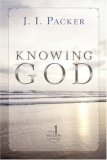
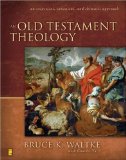



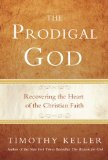
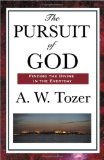
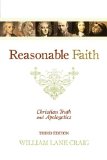

Leave a comment